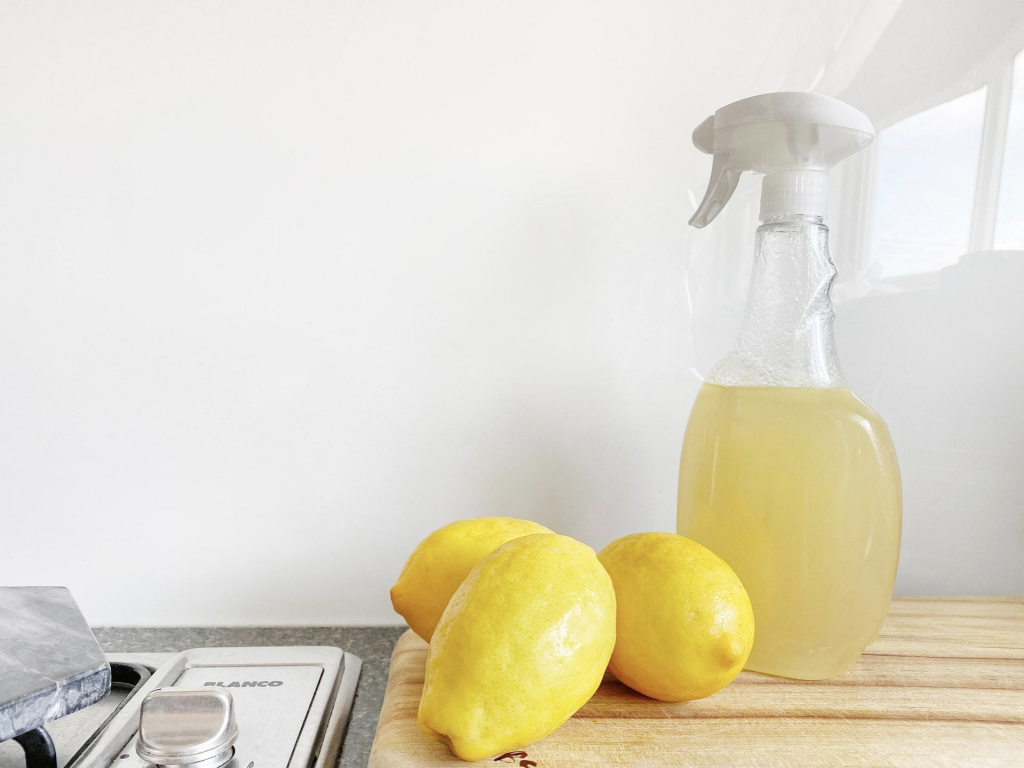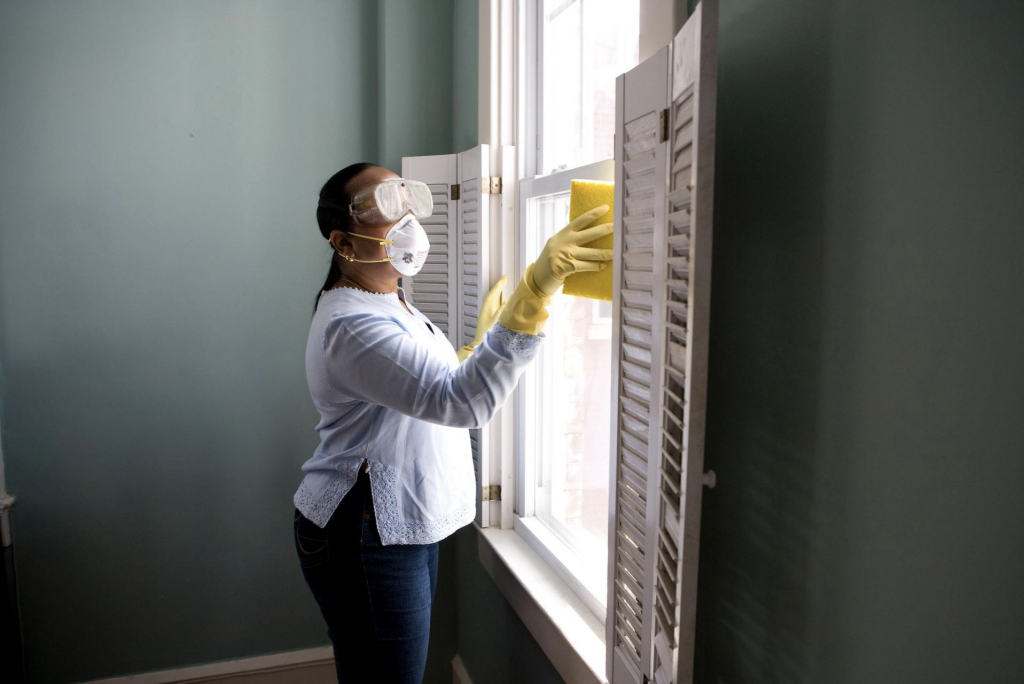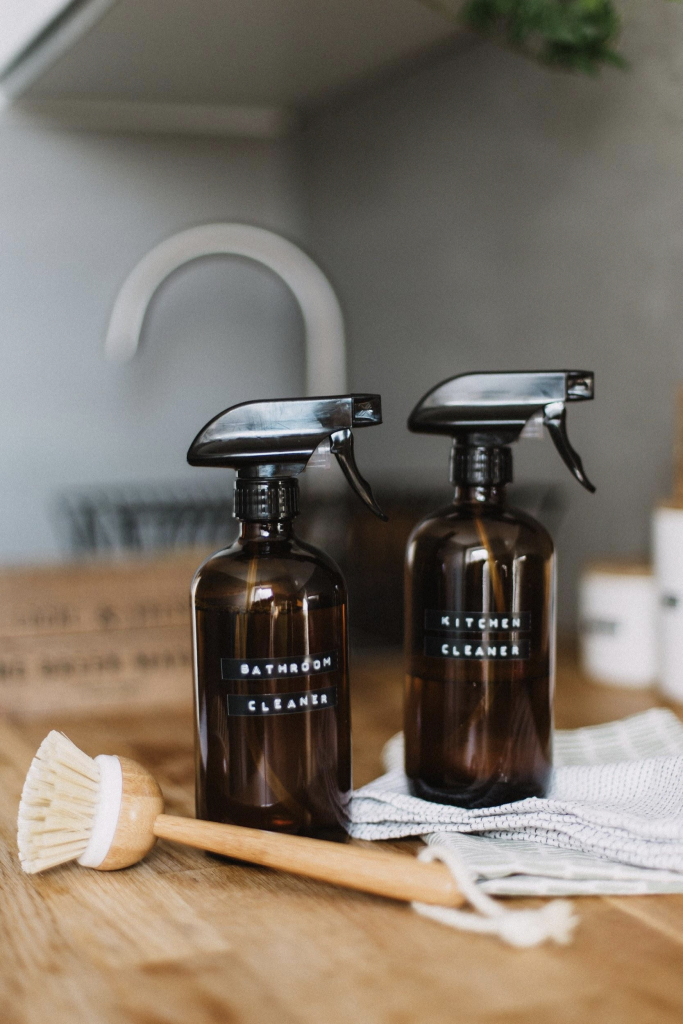
Why not make this spring cleaning different from the rest! The change would consist of the quality of the cleaning products you normally use. Instead of conventional, off-the-shelf chemicals go for natural cleaners you can even make yourself. You will save money, improve your health, and help protect the environment.
Cleaning the oven the easy way
Homeowners are under the impression that eco-friendly solutions aren’t as nearly as potent as conventional cleaners. This is simply not true, as we see from the example of cleaning the oven.
Regardless of how many thick layers of grease might accumulate over time, they are easily removed using a paste of baking soda and water.
You simply spread the paste across the bottom of the oven and spray its walls and the ceiling. After the paste is left to sit overnight, you can easily scape it and the grease off in the morning.
Liven up the kettle
For coffee and tea lovers, it’s impossible to imagine their morning routine with a kettle. However, a kettle is nothing more than a downscaled water heater like the one we have in the bathroom, so it isn’t immune to scale.
Descaling the kettle involves a solution composed of white vinegar and lemon juice. The two are mixed in a 50-50 ratio and poured inside the kettle that is then turned on.
After it boils for a while, rinse it with water and leave it to cool down a bit, although it should be on for a couple of more minutes.
The inside of the toilet bowl
One of the places that homeowners often shy away from cleaning is the inside of the toilet bowl. However, you shouldn’t fear the nasty bacteria living inside the bowl if you have a pack of baking soda with you.
All you have to do is spread it across the bowl evenly and let it do its magic for one hour. Instead of scrubbing hard, all you have to do in the end is flush the toilet. If you’re a fan of pleasant smells, then mix in some lemon juice with the baking soda.
Refreshing your dishwasher
The dishwasher is usually cleaned using expensive chemical tabs that actually eat into metal over the years. Luckily, white vinegar is just as potent, since it dissolves grease and sanitizes surfaces. Just two cups of white vinegar are enough to clean the inside of the dishwasher. The appliance is left to run one cycle empty to make sure all the bacteria and nasty odors are neutralized.
The true power of white vinegar
We have mentioned white vinegar as a cleaning solution more than once. This weak acetic acid contains numerous cleaning properties that render it the ideal eco-friendly substance.
Firstly, it has strong antibacterial properties, which make it ideal for washing away organic residue, like inside the kettle and the dishwasher.
When mixed with water, vinegar becomes a powerful stain remover that doesn’t damage the fabric like industrial chemicals. Finally, white vinegar is a great natural deodorant, as it has the power to imbibe foul smells. Homeowners usually apply it with lemon juice, so there is a pleasant after-smell.
If you wish to get rid of cooking odors, then let white vinegar simmer with water. Vinegar is the perfect deodorizer for removing the stench of garlic, fish, and onion, so every housewife out there keeps a cruet of vinegar in the kitchen cupboard.
Spotless window panes

The windows on your house, especially the ones on the front façade are the pride of your residence. However, windows facing the street get dirty quickly unless there is a hedge to act as a green barrier. Therefore, the eco-friendly cleaning solution (pun intended) used on these windows has to be quick.
Like the kettle, windows are best cleaned using white vinegar. An empty spray bottle is filled with vinegar and water (50-50 ratio) and then sprayed onto the windows.
If you are wondering about how to clean windows using natural products, we have good news for you: it’s the same as with conventional glass surface cleaners. However, in the latter cases, there is zero impact on the environment.
This means that you won’t have to throw the microfiber cloth away and that you’ll have a homemade cleaner for the mirrors inside the house.
Washing clothes the green way
Modern washing machines are designed in such a way that they use way less water to operate than models sold a couple of decades ago. It’s worth looking at labels when shopping for a washing machine, as there are models that save electricity as well.
However, the biggest positive impact on washing clothes is owed to the type of detergent you use. Instead of using a fabric softener that is loaded with hazardous chemicals, you can add baking soda into the drum.
Baking soda removes unpleasant odors and softens the fabric; not to mention the fact that it can be used to clean the drum from the inside.
Shiny bathroom tiles
Keeping the bathroom tiles shiny is hard work, especially when you take grout into consideration. Tiles can be scrubbed hard but you never seen to remove all the black patches from the grout between the tiles. This is because your bathroom grout has come alive, as those darkish streaks is actually mold!
Luckily, a mixture of carbonated eater and white vinegar is an eco-friendly way to loosen mold, so it can be removed by swiping a wet cloth over it. If the problem persists, you probably have poor air ventilation inside the bathroom, so you’ll need to open the windows more often or install a passive vent.
When life gives you lemons

Just like vinegar, lemon boasts antiseptic and antibacterial properties. That’s why nearly every green cleaner lists lemon juice as one of the ingredients. Due to its high acidic content, lemon acts as a natural deodorizer, as it is widely used throughout the house (mainly in the kitchen).
For example, copper pans that are making a comeback can be revived using lemon juice mixed with salt or baking powder. Once you scour the pans with this mixture, you will end up with shiny pieces of metal, ready for cooking.
For plastic surfaces and containers, lemon juice and baking soda are excellent stain removers, as scrubbing plastic with a wire sponge can damage it. Finally, instead of buying costly anti-disinfectant that should be used near food, use a slice of lemon to sanitize the chopping board.
Removing rust using baking soda
We all have baking soda in our kitchen. Even folks who aren’t good at cooking, keep sodium bicarbonate in the zero-waste pantry. The mildly alkaline substance has abrasive properties and acts as a deodorant. If you run out of commercial abrasive cleaners, you can always mix baking soda with water.
The au natural paste you get is abrasive but it doesn’t scrape the surface it is meant to clean. The solution is particularly effective against grease; that’s why we have recommended it for cleaning the inside of the oven or the microwave.
The power of pressurized water
Cleaning the driveway and the garden pathways might seem like an impossible task. In reality, if you own a powerful garden hose, this chore can be over in less than half an hour. Instead of using poisonous weed killers, pressure-wash all the concrete and paved surface outside of your home.
Commercial weed killers are dangerous chemicals you can never get rid of, as they remain inside the ground, where they are washed down after rainfall. Even when these liquids reach the drain, they flow into the local river, polluting it.
When it comes to cleaning your home’s exterior, water is everything you need. You must never underestimate the power of water when pressurized.
A clean home is a reason to be proud but cleanliness shouldn’t entail ecocide! Lemon juice, white vinegar, and baking soda can replace pretty much any commercial cleaner, so there is no reason not to make homemade cleaners that are 100% eco-friendly.
